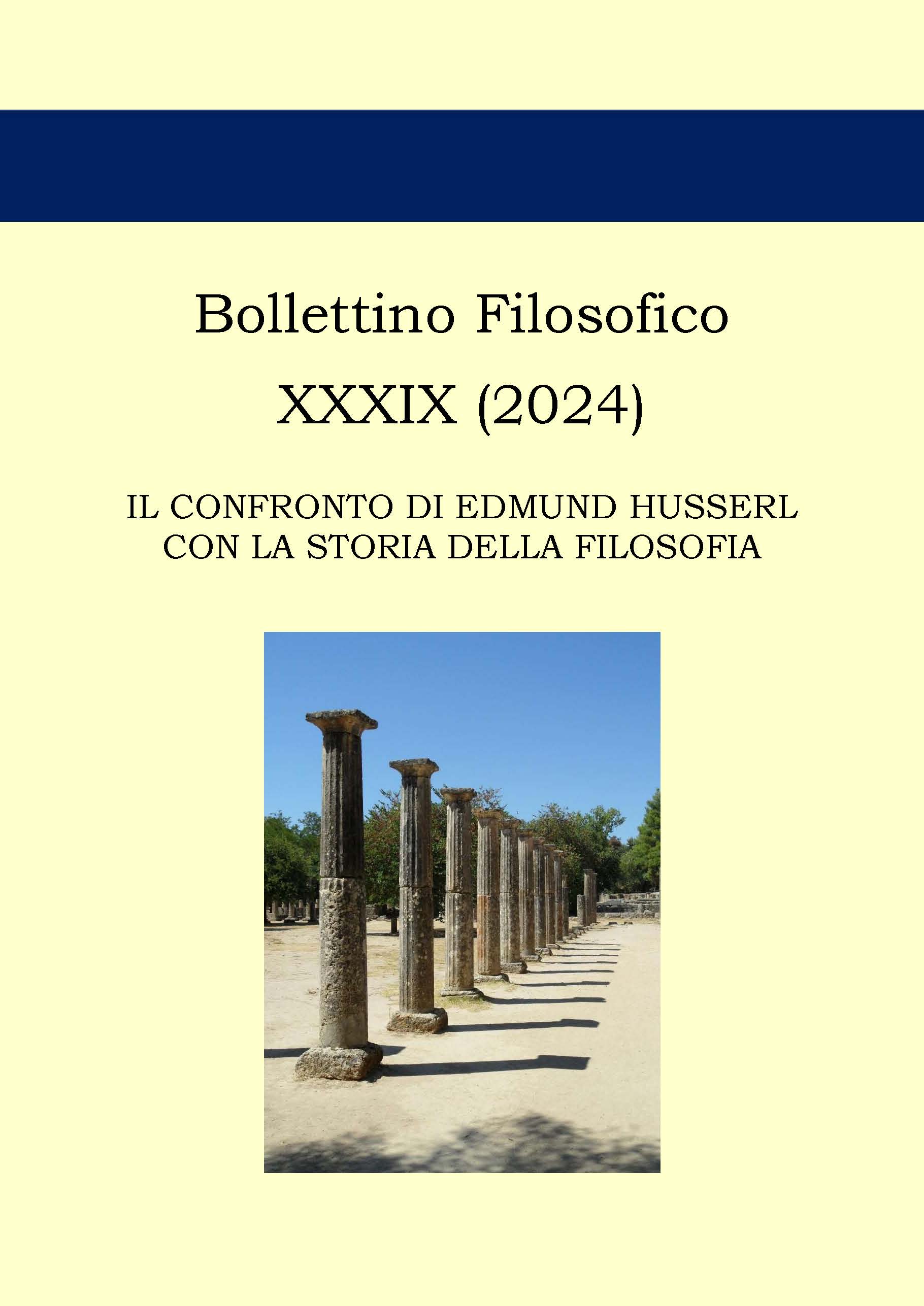Il campo di battaglia di ragione e sentimento. Husserl sulla storia della filosofia alla ricerca di un’etica fenomenologica
Abstract
Husserl’s search for a phenomenological ethics, initially conceived of as a practical science analogous to an a priori theoretical science, was shaped by several historical sources. The article shows which sources influenced Husserl in what way. A first part discusses Brentano’s and Jodl’s influence on how Husserl approaches ethics. Part two to five follow Husserl’s interpretations and critique of the history of ethics from Socrates to Fichte. A final part discusses the history of ethics viewed from the standpoint of Husserl’s late ethics. The article culminates in the question as to whether Husserl’s conception of ethics stood in a certain tension to what he actually discovered in his phenomenological analyses of ethical phenomena.
Keywords: Brentano, Feeling, Fichte, Jodl, Husserl, Reason, Shaftesbury
Downloads
Copyright (c) 2024 Inga Römer

This work is licensed under a Creative Commons Attribution 4.0 International License.
Bollettino Filosofico pubblica in internet, ad accesso aperto, con licenza:
|
|
CCPL Creative Commons Attribution |
L'autore conserva il copyright sul suo contributo, consentendo tuttavia a chiunque "di riprodurre, distribuire, comunicare al pubblico, esporre in pubblico, rappresentare, eseguire e recitare l'opera", purché siano correttamente citati l'autore e il titolo della rivista. L’autore, al momento della proposta di pubblicazione, è inoltre tenuto a dichiarare che il contenuto e l’organizzazione dell’opera è originale e non compromette in alcun modo i diritti di terzi, né gli obblighi connessi alla salvaguardia di diritti morali ed economici di altri autori o di altri aventi diritto, sia per testi, immagini, foto, tabelle, sia per altre parti di cui il contributo può essere composto. L’autore dichiara altresì di essere a conoscenza delle sanzioni previste dal codice penale e dalle leggi speciali per l’ipotesi di falsità in atti ed uso di atti falsi, e che pertanto Bollettino Filosofico è esente da qualsiasi responsabilità di qualsivoglia natura, civile, amministrativa o penale, e sarà dall'autore tenuta indenne da qualsiasi richiesta o rivendicazione da parte di terzi.
